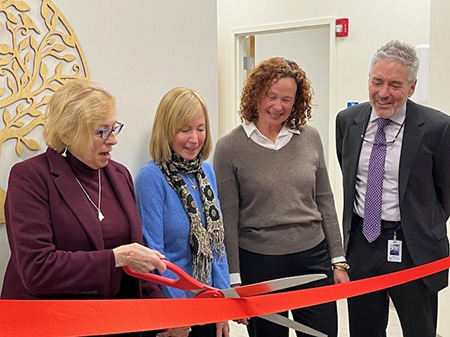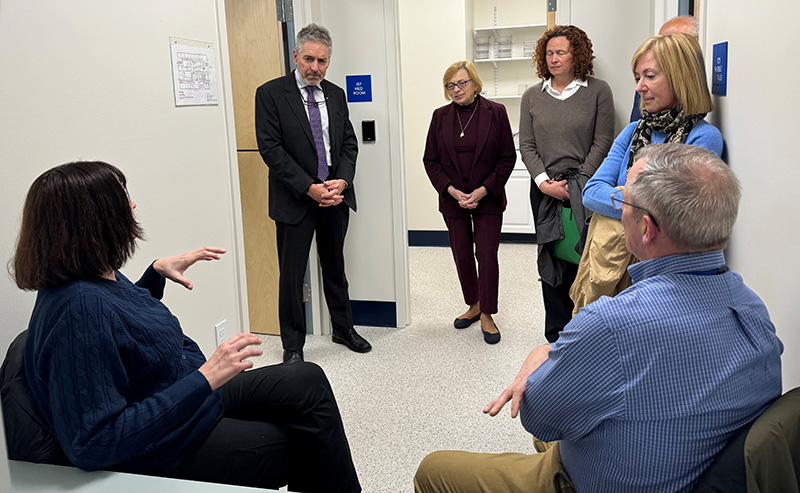Expansion of Portland Medically-Monitored Withdrawal Program will add new treatment options for low-income Maine people with substance use disorders
Governor Janet Mills today celebrated the upcoming opening of Milestone Recovery’s expanded substance use disorder treatment program in Portland.

The new facility, expected to open later this month, will nearly double the number of beds in the Portland nonprofit’s Medically-Monitored Withdrawal (detox) program for substance use disorders, greatly expanding access for uninsured and underinsured Maine people to treatment for opioids, alcohol, and other addictive substances.
The $3.1 million expansion was made possible by a combination of state, federal, local and philanthropic funding, including $2.1 million from the Mills Administration through the Maine Department of Health & Human Services. Since taking office, the Mills Administration has invested $6 million to increase the number of licensed beds for medically supervised withdrawal and substance use treatment services across Maine.
“This new facility will open the door to critical treatment that can set Maine people struggling with substance use disorder on the path to life-long recovery," said Governor Janet Mills. “My Administration will continue to do all we can to stop drugs from reaching Maine; to prevent substance use disorder to begin with; to treat it when we can’t prevent it; to set people on a life-long path to recovery – and above all else, to save lives.”
“We’re thrilled to have taken this major step in easing access to substance use treatment for our most vulnerable Mainers,” said Tom Doherty, Executive Director of Milestone. “It takes a lot of courage for someone to ask for help overcoming a Substance Use Disorder, and it’s heartbreaking when we have to tell them no because there’s no space in the program. This step will let us say yes more often.”

Milestone’s new facility on Andover Street in Portland–its second location–will expand the number of treatment beds in the program from 16 to 30. Expanding the availability of medication assisted treatment options, such as methadone and buprenorphine, is a priority of Maine’s Opioid Response Strategic Action Plan. Medically-assisted treatment can help manage the painful and often debilitating symptoms of withdrawal from alcohol, opioids, and other addictive substances.
Since Governor Mills took office, Maine has expanded the number of treatment beds for substance use disorder by 50 percent. In the last year, Maine has opened 50 beds in Auburn, Bangor, Windham, Presque Isle, Limestone, and Portland, with ten beds each to come in Androscoggin and Washington Counties.
The supplemental budget passed by the Legislature and signed by Governor Mills last week includes $4 million proposed by the Governor to expand Medication Assisted Treatment in Maine county jails. This builds on the proven use of Medication Assisted Treatment in Maine prisons and other initiatives announced by the Governor, including adding nine new recovery coaches to OPTIONS teams statewide and further expanding the distribution of naloxone across Maine.
The budget also adds $550,000 to strengthen start-up funding for substance use treatment in Kennebec County through a Crisis Receiving Center, which aims to combine a traditional withdrawal management program with access to referrals for ongoing treatment.
More about Milestone Recovery can be found on the non-profit’s website at www.milestone-recovery.org or by calling (207) 775–4790.